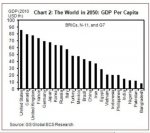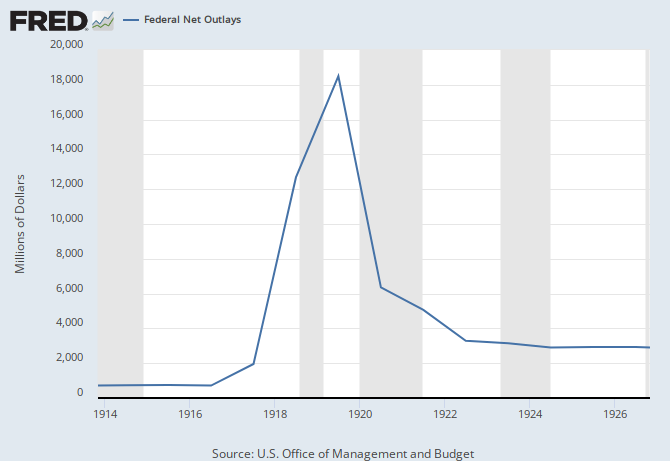the assumption that the US economy will always grow. … historically that's a very poor assumption.
Except for the Great Depression (thanks for
that one, GOP SSE supporters), real US per capita GDP has grown steadily at around two percent for the past 150 years. What history are you looking at?

(
source, p. 2)
The forecasts I've seen anticipate a figure of around $85K by 2050.

(
source)
I have shown many times how 'austerity' ended the 1920/21 Depression in 3 1/2 years
You keep saying that, but it's a ridiculously stupid lie. You think you can win an argument by referring to events that nearly everyone is ignorant of from a hundred years ago.
That downturn lasted eighteen months, not
forty. And two years later, in May of 1923, the economy was back in recession. That one lasted
fourteen months. A little more than two years after that?
Another recession started in Oct 1927. Sounds like a horribly mismanaged GOP SSE economy to me. Wait another two years, and we get the GOP SSE Great Depression and Nazi Germany. But yer such a wise and successful investor, I'm sure you can tell me how those "facts" are incorrect.
>>a 10% deficit reduction which blows away the notion that you have to spend your way out of recessions/depressions
As I noted in an other thread, "the $736 billion
surplus in 1922, about one percent of GDP, created by a
31% reduction in federal spending, was one factor that pushed the economy back into recession two years later in May 1923."
>>unemployment during the huge government stimulus 1930's was five times worse 10 years after the crash in 1929
You get those figures by pretending that Americans employed through the New Deal work relief programs you demonize were somehow unemployed. The gubmint didn't start measuring unemployment through the CPS until 1940, so we're left to rely on academic studies.
The rate in 1929 was in the 3-4% range. If you count those employed through work relief programs as unemployed, you do indeed get a rate in 1939 of around 17%. If you decide to be more realistic and count them as employed, the rate was more like 11%. And even that fails to account for the poor decision FDR made in 1937 to go with austerity, as federal spending was cut by seven percent. The unemployment rate was down to around nine percent that year, and ran back up to eleven when programs were cut.
This is, I admit, a complex issue. See, e.g., "
Employment and Unemployment in the 1930s,"
Journal of Economic Perspectives, 7:2, Spring 1993, pp. 41-59, reprinted by the
Federal Reserve Bank of St. Louis.



